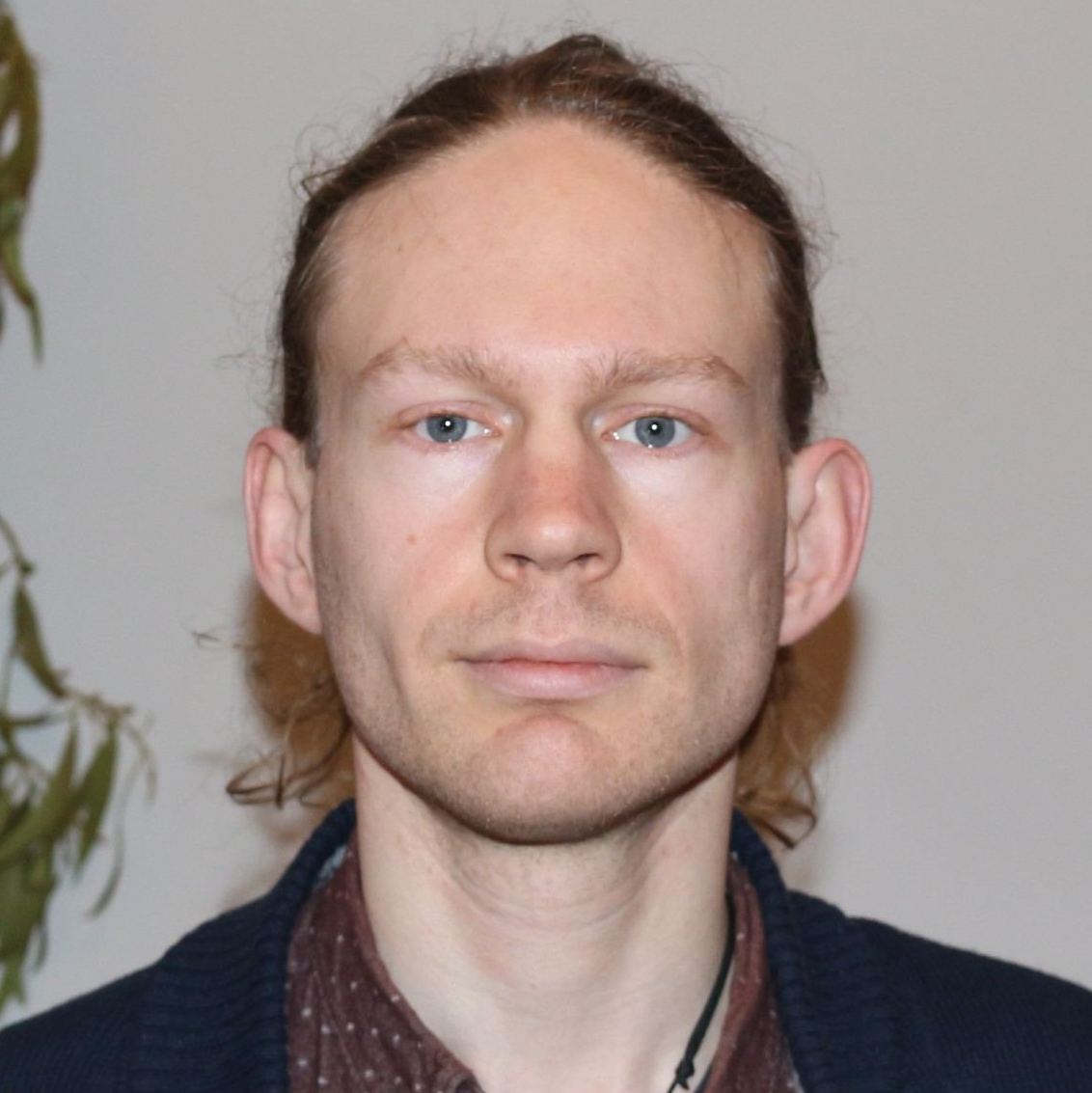Shaping Transformative Cultures

(Click here for an epic reading soundtrack.)
I am on a quest to discover group cultures that could allow humans to live in harmony with life.
In the past few months, I have developed an idea called Transformative Cultures that I want to share today.
Sharing it excites me so much because I have growing confidence that this is the work that I was put on planet earth to undertake.
But first, what are cultures and why are they important?
We like to think of ourselves as free agents, making rational choices about how we want to live.
But actually, many of our behaviours and the things we think are important are simply inherited from the norms and patterns of our time: that we call culture.

I call our particular culture the culture of control. It’s primarily motivated by a fear of change and works to prevent it by limiting many of the instincts that make us alive and human.
For example, it works to prevent us moving beyond our outdated economic model of organising society by encouraging us to spend our lives in bullshit jobs and on Netflix and social media rather than pursuing our dreams and actively working towards the more beautiful world our hearts know is possible.
When we do come together in social movements to try and change things, we bring with us many of the culture of control’s assumptions and behaviours. This leads us to recreate its toxic patterns within our movements.
To overcome this, we talk lots about being ‘prefigurative’, which means to try and embody the world that we want to see within our movements. For example, we try to make decisions collaboratively because we no longer want to live in top-down hierarchies. However, these attempts barely scratch the surface of what is required.
In order to really change things, we must come together and discover extraordinary new ways of being with ourselves, each other, the natural world and reality itself. This is the creation of new cultures.
Then when we come out onto the streets or into contact with the destructive systems of our world, we will genuinely represent something new and have a real proposal for how humans can live together and with nature in love and harmony.
Today I will share some ideas I’ve had about what these cultures could look like. I don’t claim to have the full picture by any means, but this is where I’ve got to with my thinking.
Let’s get cracking!
What are Transformative Cultures?

Transformative Cultures support humans in returning to the flowing river of life.
What does this mean?
When you look at the long history of life from the big bang onwards, a pattern becomes evident. Life tends to move towards more complexity, collaboration and consciousness. Simple atoms like hydrogen assemble into more complex structures. Cells in the human body come together to make organs, which together create the entire conscious being. The work of scientist Stuart Kauffman highlights this trend. It doesn’t seem too far fetched to say that the purpose of life is evolution; both of matter and consciousness.
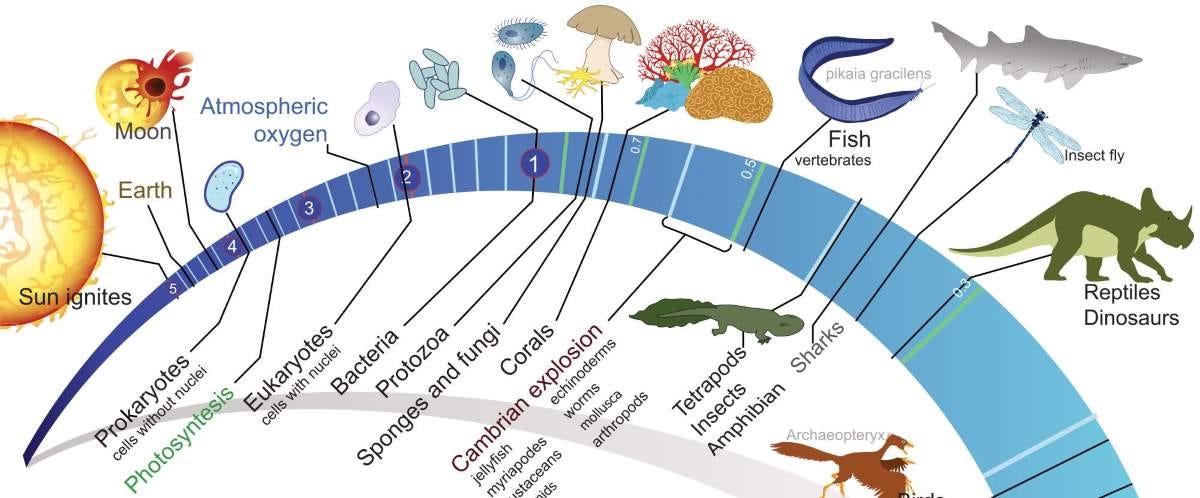
Life achieves this through a continual process of dissolution and reformation; integration and individuation; things constantly falling apart and the pieces brought together in new ways. You might call it experimentation! Each discipline has its own terminology for this process. In biology: it’s evolution. In complexity science: it’s emergence. But I call it the process of transformation. Being in the flowing river of life is what it is like to live in alignment with this process.
Natural ecosystems, in tune with this process, have an enormous ability to be adaptive to environmental changes. For example, the peppered moth evolved particularly to survive well during the coal filled pollution of the industrial revolution.
We as humans can also have experiences of being in the flowing river of life. For example, you might have a difficult conversation with someone and speak in alignment with yourself and experience the words moving through you. Or similarly, you might have the experience of a creative project seeming to come from somewhere beyond. I also notice it when group spaces are magically alive or filled with love happening all around.
Unfortunately, our culture of control’s primary aim is to avoid this transformational process inherent to life. Most of us have distanced ourselves and left the river. This is why I have previously described our society as in opposition to life itself.
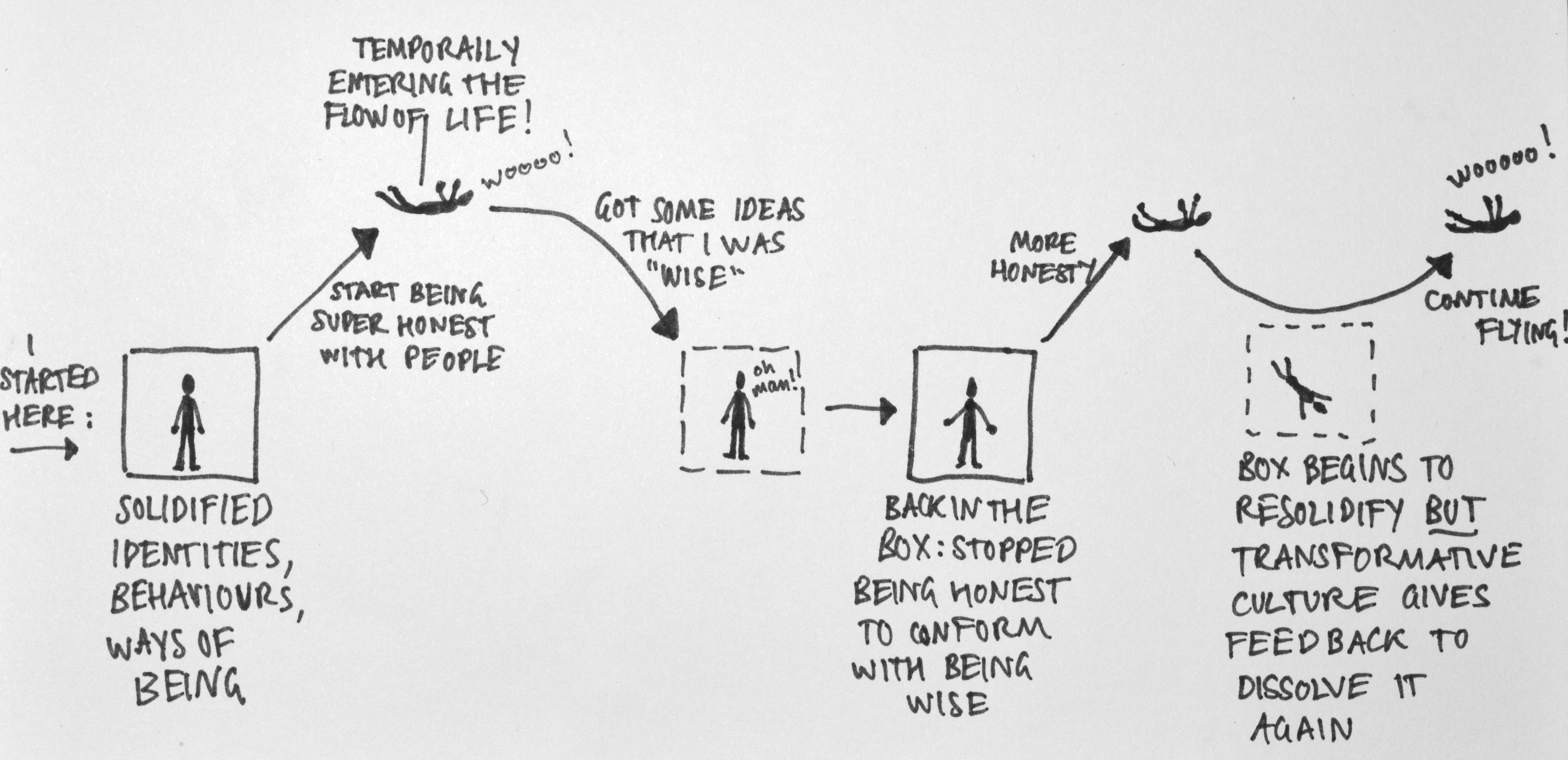
Another metaphor to describe this process, coming from Possibility Management, is learning to fly. Most people in our society have been conditioned into highly ordered and patterned ways of being and acting in the world. They get stuck in a rut, part of them is afraid of anything different. At some point a life event or a transformational experience might disrupt their rigidity and cause them to ‘take off’, welcoming new identities and behaviours. Unfortunately, after some time they might become attached to their new ways of being in the world, causing them to re-solidify and return to the ground. Learning to fly is the process of learning how to get into the air through casting away your old ways of being without becoming attached to the new ones that emerge. This is the process of getting yourself or a group into the flowing river of life. The diagram above shows one experience I had that followed this pattern.
These metaphors also apply to our social and cultural movements that attempt to change things. When a new movement or subculture comes along like the psychedelic sixties or Extinction Rebellion, it brings a new wave of energy, behaviours and identity to a group of people. But after some time that group becomes attached to the trappings or ways of being of that particular movement. It becomes too scary to try anything new because people’s egos are attached to whatever achievements and status they have already achieved.
A movement in the flowing river of life would be able to let go of the things that were not serving it and make bold new experiments, even if there was a high possibility they would fail. They would not get attached to whatever achievements and status they had already reached. This movement might have a chance at ending the untold suffering of our oppressive systems and destruction of the natural world. It is what we need in order to stand a chance at surviving in the turmoil of a climate and ecological emergency.
To create that movement we need to begin exploring transformative cultures and learn how to embody them in our groups.
We leave the flow of life by building walls between ourselves and the things out there in the world that might change us. We disconnect ourselves from the world around us to avoid the fear of change. This is how we leave the flowing river of life: we build dams! To begin to create a transformative culture, we must tear down these walls!
In this article, I will talk about three relationships where we have built walls and become disconnected: between us and our deepest selves, between us and each other, and between us and the natural world.
Each represents a source of untapped potential for transformation that could support us in returning to the flowing river of life.
In each area, I will discuss how our culture of control cuts us off from the possibility of transformation, as well as how we could create transformative cultures that would encourage and support reconnection in these areas.
While our culture of control is a monolith, with the ideals of neoliberal capitalism spreading around the world like a cancer, there would be many Transformative Cultures. Life thrives in diversity. Each group would come together to experiment with different ways of reconnecting with life. Some of their learnings might only be relevant to a particular environmental context; others would quickly spread across the globe. This is why this article is about Transformative Cultures plural.
Let’s reconnect!
Reconnecting with Ourselves
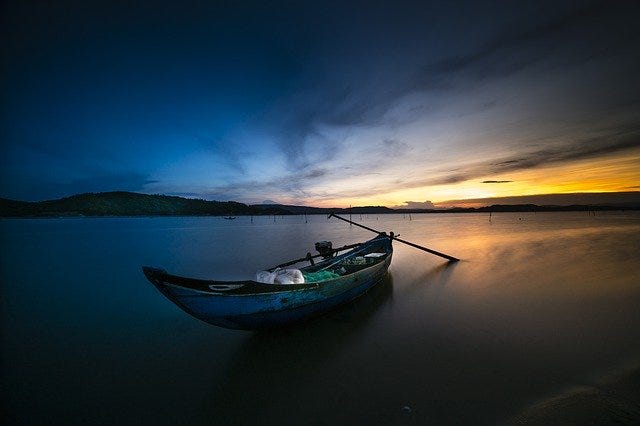
Deep within us, there are immense vaults of wisdom for living in alignment with life.
We can access them if we delve into ourselves and explore who we are and what we really want.
Our culture of control prevents people from really coming into contact with themselves. It says that you don’t need to explore who you are, just follow a well-trodden path like becoming a doctor or a lawyer, and you will be rich and happy. Even if you do try to explore who you are, you will face the barriers of our culture at every turn. How will you get enough money to survive and have the time to journey into yourself?
How would a transformative culture reconnect us with ourselves?

Firstly, it would support us to reconnect with our feelings, which are vital sources of energy and information for navigating in the flowing river of life. They give us wisdom about what is most important to us right now. For example, your anger might be telling you about something that you want to change in your life. Your sadness might support you in connecting with someone or realising something that you have lost.
This focus on feelings, does not mean abandoning the intellect as a tool for navigating life. Instead, Transformative Cultures would support us to do the work of intertwining our intellectual and emotional systems, to give us a guidance system to deal with the complexity of modern life. We cannot move beyond our present cultural moment of post-modern, post-truth without the emergence of these more holistic ways of knowing. We need new, more integrated forms of rationality and re-integrating our feelings is an important part of that.
Our culture of control treats feelings as bad and gives us very little support in using them to transform our lives. For example, men are taught that expressing their sadness makes them weak and childish. Women are taught that expressing their anger makes them hysterical. Most importantly, both are considered unattractive to the opposite sex. It is not an accident that we live in a society of numb people; it makes it easy to control us and keep us in line.
Could we go to work each day in our mind-numbing jobs if we had access to the aliveness of our feelings? If we had access to our sadness and anger about what is happening in the world around us, I think the collective energy would be too much to contain and things would have to change.
Healing the emotional wounds of many generations living in a patriarchal, oppressive civilization would be a priority for a Transformative Culture. Those traumas are what prevent us from being open and honest with each other and from authentically bringing our gifts into the world: thus being in the flowing river of life. Whilst, healers would take on the kind of societal importance given to engineers and financiers in our culture of control, we would all need to learn the basic skills of supporting one another emotionally. Re-evaluation Counselling is a good place to start.

Secondly, it would support us to reconnect with our sexuality and desire. In our desire, is what is important to us. This is what makes us alive. Our desire or ‘eros’ is constantly changing and cannot be put within a box. If we are following our desires, we will be following the ebbing, flowing river of life.
In our culture of control, we repress our desires and are afraid of our sexuality. It is instilled in us that pleasure and desire can only lead to hedonism. Why? Because the liberation of desire is a powerful force!
This emancipation of desire does not mean consuming all the chocolate cakes, cigarettes and pornography you crave, unreservedly. It means exploring our desire for those things and asking ourselves whether there are deeper desires, potentially for connection, that we are using these addictions to fill. In her book Pleasure Activism, Adrienne Maree Brown explores these topics in far more depth than I can today.
“I believe our imaginations — particularly the parts of our imaginations that hold what we most desire, what brings us pleasure, what makes us scream ‘yes’ — are where we must seed the future, turn toward justice and liberation, and reprogram ourselves to desire sexually and erotically empowered lives.” — Adrienne Maree Brown
Transformative Cultures would create safe environments for the exploration of sexuality and desire. An example of such experiments is at the Global Love School in the Tamera ecovillage in Portugal which focuses on ‘freeing love from fear’.
Our sexual energy or ‘eros’ is not only useful in the bedroom. Practices such as Rob Burbea’s Soulmaking Dharma show that our erotic energy can guide us towards what is deeply meaningful to us in life. Those things that ignite our passion so much that we can’t help diving in to explore more.

Thirdly, once we have access to our feelings and desires, it would support us to explore our soul purpose. While talk about ‘souls’ might seem woo-woo because of its religious connection to immaterial substances, my conception of soul comes from James Hillman who was heavily influenced by Jung. He saw soul as “a perspective rather than a substance, a viewpoint towards things”.
For me, it is the view that there are particular gifts that want to move through you and out into the world. As each animal has its place in the ecosystem of life, so does each person have their place within the human village.
“Your soul is your true nature. Your soul can also be thought of as our true place in nature… At the level of soul, you have a specific way of belonging to the biosphere, as unique as any maple, moose or mountain.” — Bill Plotkin
There are connections between our soul gifts and our desires and feelings. Our gifts are what we most deeply desire to bring into the world. Often this desire comes with a powerful anger or grief about something that needs to change in the world. Following these desires gives us a pathway to constant transformation in the flowing river of life.
Learning how to reconnect with our soul purpose is a process of developing an energetic awareness towards particular areas of experience. In Douglas Tataryn’s model of the human psyche, this is called “Looking Around”. For example, as a musician, you become aware of the energetic feel of particular notes and harmonies. As a modern-day shaman, you might become aware of the energetic group field that exists in human spaces.
Transformative Cultures could support us in discovering our soul gifts in many ways. Primarily, by creating safe spaces and communities where people can experiment with giving their gifts and getting feedback to grow and improve. They could also support us in overcoming our barriers to creativity. For example, in school, we get it into our heads that we are ‘good’ or ‘bad’ artists. That some of us are ‘musicians’ and others shouldn’t step anywhere near a guitar or open their mouth to sing. Coaching combined with processing the emotional wounds of school, can help us get through these barriers. A Transformative Culture would welcome all forms of creativity and play.

Lastly, through creating rites of passage, adulthood initiations and rituals that would allow us to give our gifts authentically and feel comfortable flowing down the river of life. Many indigenous cultures welcome their young people into adulthood through rite of passage initiations. This is a ritualised process of taking back your authority from those who you have given it to in your childhood (teachers and parents) and using it to take responsibility for your life.
I am beginning to get a feel of what it is like to be in the presence of an adult. The crazy thing has been realising how few and far between they are. We live in a world of children running governments, banks and corporations. Look at Boris Johnson for one! I’ve realised that the majority of people in our culture die as children. Or at least they only wake up to their place in life on their deathbed.
Why? Because our culture of control does not want us to step into our full power and authority as adults. Again, that would be too much for it to control. A Transformative Culture would create empowered people who would rock the boat on a daily basis. If the boat does not rock, then we fall back into stagnancy and decline.
One of the key things that stops us from flowing in the river of life is our fear of nothingness, our fear of death. If we are in the river of life, deaths are happening constantly. The death of identities, the death of behaviours, the death of things that made us feel secure. An important part of rites of passage is giving young people the experience of facing death, so they can realise that their fear is out of place. An example are the vision quests of Native American Cultures.
Similarly, Shadow Work is another important part of the transition into adulthood that Transformative Cultures would encourage. This is a term from Jungian psychotherapy that points to the “dark sides” of our personality that we ignore and often deny in ourselves. For us to be whole adult beings we must integrate this disowned part of ourselves. Only when someone knows the possibility for darkness within them can they truly be compassionate when facing such behaviour in others. Journeying into the shadow is also an important part of discovering our gifts.
This captured by Leonard Cohen’s line:
“There is a crack in everything, that’s how the light gets in”
Similarly Jung writes in [Psychology and Alchemy](https://www.amazon.com/gp/product/0691018316/ref=as_li_tl?ie=UTF8&tag=ceosage08-20&camp=1789&creative=9325&linkCode=as2&creativeASIN=0691018316&linkId=0ab406f3a50d78cde6a2e6351f5116a6):
“There is no light without shadow and no psychic wholeness without imperfection.”
A culture of people who have connected to their emotions, liberated their sexuality, taken back their authority, journeyed into their shadow and are working on authentically giving their gifts for a better world would be an unstoppable force that even the culture of control could not contain.
Reconnecting with Each Other
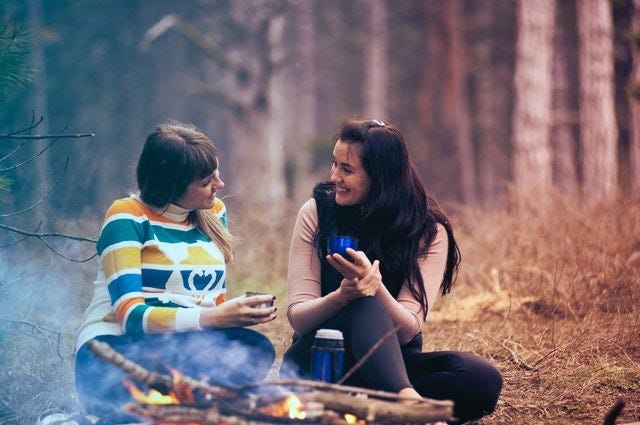
One of the biggest potential sources of transformation in our lives comes from our relationship with one another. Each human being is different and coming into direct contact with that difference can provoke us to grow and change — to enter the flowing river of life. Often other people can see what is going on in our lives far more clearly than we can. They have gifts to offer us. Are we willing to listen?
Inside our culture of control, we are raised to avoid the direct contact of being open, honest and vulnerable. Instead, we use our relationships as tools for keeping things the same and staying safe. We keep our conversations on the surface, away from any challenging territory that might provoke change in us or them. If we were honest with each other, things would change in us and others, in an instant. But we are too afraid to take this jump.
Our culture of control encourages us to live as isolated from one another as possible. It knows the radical, revolutionary potential of people living together in community. My experience has been that living in larger groups in community is fucking hard. It brings up all the traumas that are just lying under the surface. But because of this, it is an enormous opportunity for learning, growth and transformation. Groups can become melting pots for ideas, testbeds for transformational practices and create units of power strong enough to challenge the dominant order.
Transformative Cultures would create the conditions for people to come together and live in real villages once again.
How could Transformative Cultures achieve this?
Firstly, by making a philosophical shift to abandon the individualist mindset that has dominated our culture for centuries. We are not isolated individuals but are always co-creating and influencing one another. The relationships between us, or as Deleuze called it the dividual, is just if not more, important than the individual. One example of this shift is the Nguni Bantu term Ubuntu, which is often translated as “I am because we are” and attempts to highlight that we only become a person in relationship to others. We must create practices and ways of being together that constantly remind us of this truth.
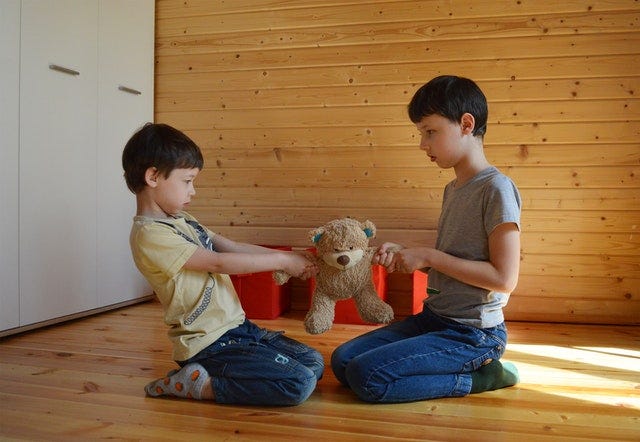
Secondly, by creating a different relationship to conflict and difference. In our culture of control, our approach to conflict is punitive. This means that when conflicts emerge we try to find out which person is right and who is wrong. We then punish the person who has done something wrong to prevent them from doing it again. Transformative Cultures would create practices of Transformative Conflict & Justice, that respect each person’s perspective and use the conflicts between them for the transformation of not only everyone involved but also the culture and systems of which they are a part. In every conflict lies the possibility of transformation at many levels from the individual to the culture, to systems. Practices such as restorative circles and convergent facilitation can be used to foster a transformative, life-affirming approach to conflict and difference.
Kafka has a famous quote that “a book should be an ice-axe to break the frozen sea within us”. We don’t need books, we can be that ice-axe for each other! If only we can be open and honest about the differences, tensions and conflicts that emerge between us, then those difficulties can become fuel for community re-connection and transformation.

Thirdly, through supporting us to upgrade our communication paradigm so we can clearly bring our gifts of difference and conflict to the table. In most conversations in our culture of control, we are so scared of conflict and difference that we avoid our actual thoughts and beliefs and replace them with meaningless stories and platitudes that have the sole goal of keeping each other happy and not ruffling any feathers. This is not only boring for everyone involved but prevents the possibility of change.
Transformative Cultures would teach people the skills to communicate their desires effectively. They would support radical honesty amongst their co-creators. There would be a shared understanding of what an alive, transformative conversation looks like, and when a conversations has solidified, becoming more about everyone involved staying safe and protecting themselves, rather than fostering our collective co-evolution.
Non-Violent Communication and other forms of conscious communication can provide many of the skills necessary to support this kind of relationship with communication and conversation. There are also many ‘we-space’ practices that support open dialogue between individuals. For example, physicist David Bohm knew that our society’s problems were deeply entwined with our failure to communicate with one another, so he created the Bohmian Dialogue. Which is a method for directly coming into contact with a group of people in an honest way.

Lastly, through working to heal the rift between genders. The Patriarchy has sowed many seeds of distrust between men and women. This distrust prevents us from being in open, loving, flowing relationships with each other and life.
I have spent a lot of time in the past year confronting the gender knot with myself and others about whether gender is a ‘real’ thing, separate from how we’ve been brought up.
Whether you believe in the existence of a divine feminine/masculine or if you think it’s all part of our societal conditioning, there is something transformational about being in direct contact with the ‘otherness’ of the opposite gender and the wisdom they have to offer. Can you stare the mystery of gender in the face and not blink? Taking this approach, romantic relationships can become alchemical vessels for transformation, if only we can face our fear.
“When the latent war between genders comes to its end, there will be no more war on Earth” — Dieter Duhm
Our culture of control pretends that the Patriarchy no longer exists. That moving towards equal pay and access to opportunities is the same thing as moving toward liberation for both genders. When you get men and women to talk to each other honestly, you realise that we are so far from this dream.
Transformative Cultures would engage in the work of gender reconciliation. One part of this would be men and women going away to understand how they have been conditioned by the Patriarchy and doing the work of liberating themselves. Feminist ‘consciousness-raising’ groups pioneered this work in the sixties and seventies but we now need a new generation of men taking up this challenge. Projects such as Gibran Rivera’s Better Men Project show how this could be possible. Another part of this healing would be for men and women to come together and witness each other expressing the pain of having taken on their particular role in the Patriarchy. An example of this work in action is in the women’s movement in Rojava.
Similar reconciliation processes would be needed to work through all other forms of oppression that make up the Kyriarchy. This is a word to describe the interconnecting systems of domination and submission in our society from racism and homophobia to classism. We must break through these systems that divide us if we are to finally reconnect with one another once again.
If we can reimagine what it means to exist in relationship to others, recreate our relationship to conflict and difference, rebuild our ability to communicate honestly and vulnerably with one another and begin to heal the millennia-old divisions between men and women, then possibly we will have a chance of coming together with the collective power to really change things.
Reconnecting with Nature
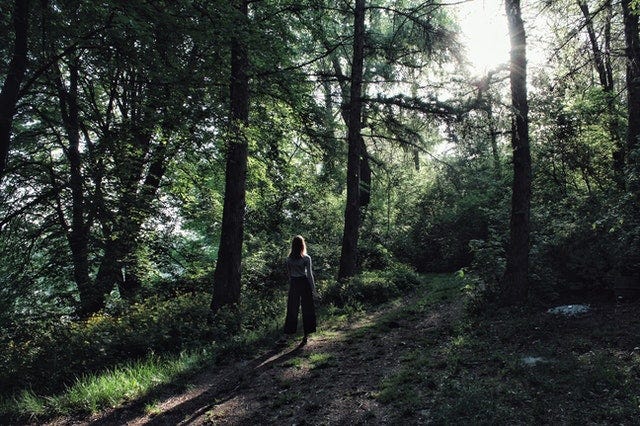
The natural world, at least the bits left untouched by our civilization, is already in the flowing river of life. It is already flying. This makes it a fantastic source of wisdom, insight and inspiration for humanity to live in harmony with life. Indigenous traditions around the world have learnt to create balance and beauty amongst themselves and with nature through observing the patterns of life. For example, they realise that rest, reflection and celebration are important for them as a group because they see nature doing just that in the world around them.
I had one such insight whilst looking at a magnificent oak tree that was reaching for the sky. Beforehand I had spent several days worrying about Nietzsche’s dark description of life as inherently power-hungry. I was troubled that any attempt to change things or to bring beauty into the world could just be seen as people trying to control a situation and assert themselves on others. But the oak tree dispelled my worries. Through striving to be its grand self in all its wonder, the tree created an oasis of life. Bushes could surround it on the ground, and countless birds and insects live within its foliage. I realised that the same thing can apply to human beings. When we bring ourselves in our truth and vulnerability, we create space for other people to do the same and in that be more alive. I feel joy even several years on writing about this insight.
Our culture of control has separated us from the natural world to avoid its call to transform and rejoin life. Sometimes, when I’m in a mythological mood, I see psychedelic mushrooms as part of this call to rejoin life. Could coronavirus even be nature upping the ante, crying out at full pelt for us to rejoin her?
We set up our lives to avoid and ignore what is happening all around us. We spend all our lives on our square phones, inside box rooms, inside box houses, inside a city, just to avoid the all-consuming fear of confrontation with nature and life itself.
When we do venture out into the wilderness we are like aliens on a foreign planet, with no appreciation of the beauty and majesty surrounding us. If we were able to truly encounter the natural world again, we might realise what wonder we have sacrificed in the name of consumption and growth.
Transformative Cultures would support us to reconnect with the natural world of which we are a part.
How would it do this?
Firstly, through abandoning the philosophical assumptions of our culture that create separation between us and nature. Whole books can and have been written on this. Put simply, we must move beyond the enlightenment idea that we live in a world of inert, dead matter where physical bodies are entirely separate from immaterial minds. A world where human beings operate in a completely different world to the natural. We need new ideas about the aliveness of nature and our role within it. Andreas Weber is a biologist whose work captures many of these shifts and argues that we must move beyond our enlightenment heritage towards a new era of en-livenment.
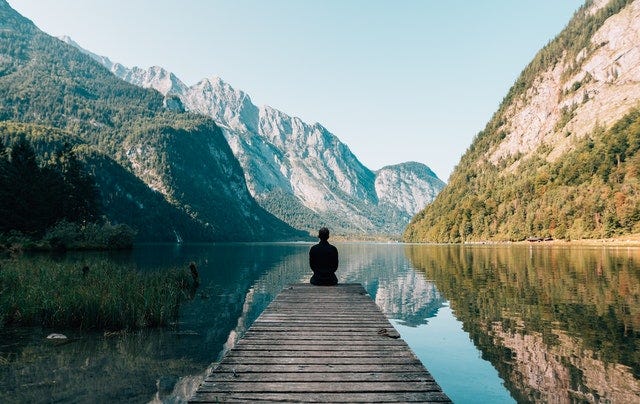
Secondly, through encouraging practices of nature connection between humans and the natural world. We need to learn how to be with and a part of the natural world again. We must have experiences that convince us that the beautiful world around us is not inert but filled with life. The best of these practices show the interconnection and dependency between us and nature. Spending time caring for the land using principles such as permaculture is a good example of this. We can realise that human beings can play a beautiful role in the ecosystem of life and support biodiversity and beauty. Other practices such as sit spots encourage connection with the seasons, rhythm and inspiration of nature. I found the work of Paul Krafel particularly insightful in this area. Can you stare the mystery of the natural world in the face? And not blink.
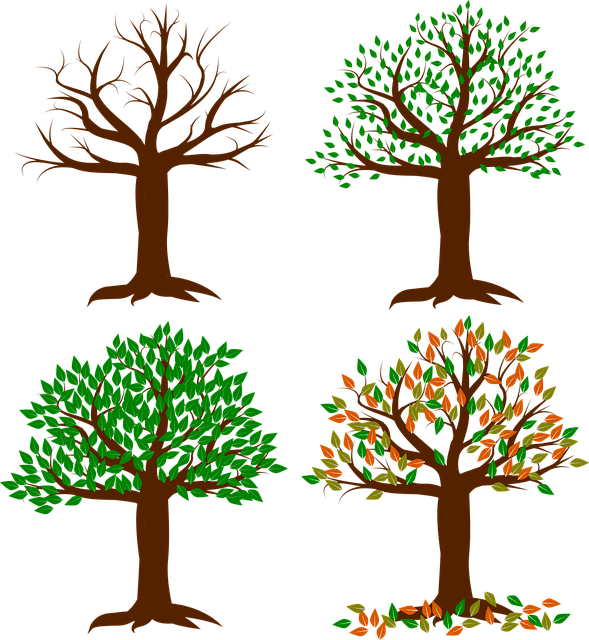
Lastly, through reconnecting with the cyclical patterns of the natural world and bringing them into the organisation of our communities and life. In the city, we barricade ourselves away from the seasons passing all around us to avoid the wisdom that is right there before our eyes. What is wisdom other than insight that removes the blinkers before our eyes and returns us to the flowing river of life? To recapture this wisdom we could return to the natural festivals of the people who originally occupied our land, before the growth of civilization. In Britain, this could be the Gaelic festivals of Imbolc, Bealtaine, Lughnasadh and Samhain. This path might help us realise that we too have different roles and ways to be in different parts of the year. We might also notice that we as human beings also have a life cycle, that mirrors those integral to the rest of nature. Bill Plotkin’s Stages of Human Development is one model that explores this.
This wisdom from the rest of nature can then be used to create communities that live in harmony with life. Many people call this bio-mimicry. i.e. making human systems copy the free-flowing ones of life. I prefer to call it bio-harmony to highlight that what we must do is not copy but return to life.
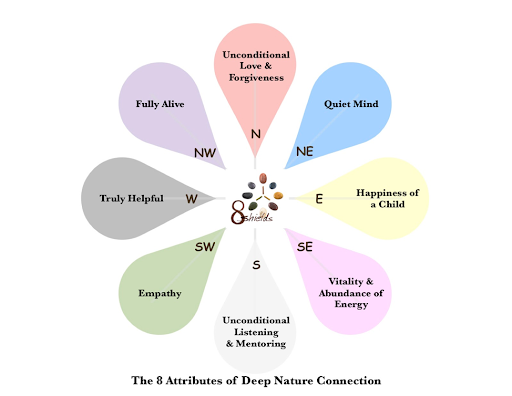
An example of this bio-harmonising work is the 8shields. Jon Young lived with and studied indigenous groups throughout the world and created a model for human communities to live in harmony with the rest of nature. He puts this model onto a compass wheel to show all the necessary parts a village needs to live in harmony with each other and the rest of nature. If you want to learn more about using nature’s wisdom to create healthy cultures, this workshop is fantastic.
If we answer nature’s call and return to her bosom of life, we will access untold resources for discovering ourselves and our place in the world. Doing this together will create an unstoppable force that can recreate our world in the image of life.
Concluding on the Mystery
All of these ideas and practices have a common theme, which is a re-connection with the mystery of life.
This is the mystery of being in relationship with self, other and world.
Once you reconnect in any of these areas, you realise that all three of the triad of self, other and reality are unexplainable, inexplicable and largely unknown.
Can you stare these mysteries in the face and not blink?
Blinking would be returning to our urge to rigidly classify, ossify and deaden the world around us.
Faced with a civilisation tearing itself apart, what we need more than anything are movements that are in touch with this mystery.
I imagine a new movement emerging onto the scene of life that truly embodies a transformative culture, in awe of the mystery. It would be grounded in communities across the land that would be able to hold this image of a different way of being human. Month-long re-enlivening processes held in these centres would welcome new rebels, back into the fold of life. These people could then venture out into our toxic society, with its culture of control, and demand change with such a force and ferocity that a new world could be born. Like a phoenix rising out of the ashes of our slowly collapsing civilisation.
In this post, I have just scratched the surface of these topics. Each area has a boundless depth for discovery, way beyond anything I have imagined. Groups who choose this journey of reconnection will be in for a wild ride, where whole new vistas of exploration are constantly opening out before them as they deepen their relationship with the mysteries beyond.
Life is calling out to us to reconnect.
What could be a more exciting and meaningful way to live in our tumultuous times, than answering that call and stepping onto this path of reconnection?
Onwards fellow humans!
PS: I am hoping to create a crack team of people to hold and take forward this vision of Transformative Cultures. If this article sets you on fire: please get in touch!
PSS: If you are interested in my ideas about how spirituality could fit into a transformative culture please see my article: Towards a Metamodern Spirituality.
PSSS: Sign up to my newsletter to keep up to date with my explorations.
